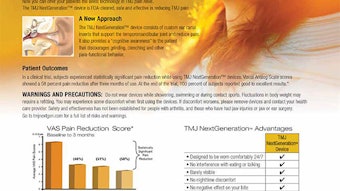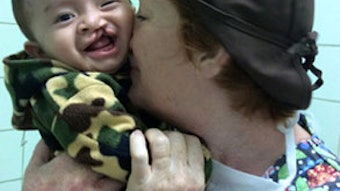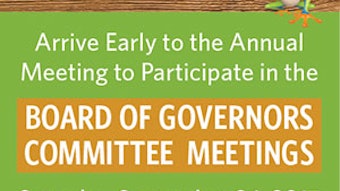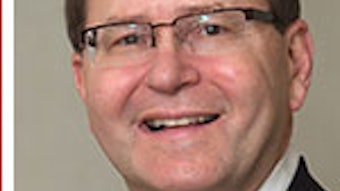Gripers and whiners
A recent “Piece of My Mind” essay by Scott I. Berman, MD, in the April 28 issue of JAMA talked about “gripers and whiners” in medicine. He made the point that “griping” is common across all professions and occupations: people complain about the difficulty of their work, yet continue in their jobs.
By Gayle E. Woodson, MD, AAO-HNS/F President
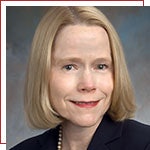 Gayle E. Woodson, MD, AAO-HNS/F President
Gayle E. Woodson, MD, AAO-HNS/F PresidentA recent “Piece of My Mind” essay by Scott I. Berman, MD, in the April 28 issue of JAMA talked about “gripers and whiners” in medicine. He made the point that “griping” is common across all professions and occupations: people complain about the difficulty of their work, yet continue in their jobs. “Whiners,” on the other hand, blame others for not being able to do their work. In the case of physicians, whiners blame insurance companies and hospital compliance offices for limiting their ability to take care of patients. He opined that physicians need to stop being “wimps” and take charge of challenging the bureaucracy.
While diligent insistence can resolve many issues, there are increasing constraints on our ability as otolaryngologists to provide what we believe to be the best care for our patients. On the one hand, we are legally obliged to provide the community “standard of care,” as defined by medical experts. But the third-party payers increasingly require more proof than our courts do. They want data, not opinions.
My parents taught me that in any conflict, I should try to see things from the perspective of people with whom I disagree. I have repeatedly found this to be a very effective exercise—helping me to identify solutions. The other day, I applied this approach in thinking about the number of insurance company practices that we otolaryngologists generally regard as flawed or unfair: e.g., denials of payment for procedures or medications that we believe are indicated. To my horror, I kind of see their point. An entity that has X amount of money to cover the healthcare needs of a population has a duty to be certain that the funds are spent responsibly—i.e., payment for proven therapies. Sometimes we cannot provide that proof in a form the analysts can understand. Therein lies the rub!
There are a number of valid and legitimate constraints on the collection of quantitative data for many clinical issues in our field. The randomized trial is accepted as the gold standard for medical research, but it is often impossible to conduct such a study of the problems that we treat. A clinical trial is considered unethical if existing evidence conclusively demonstrates efficacy (think about the infamous Tuskegee experiment). And randomized, blinded clinical trials of surgical procedures are nearly impossible. Moreover, many of our treatment outcomes can be difficult to quantify. For example, blood pressure can be expressed numerically. But nasal obstruction? Not so much. Another, very important issue: problems that are not common enough for one center to amass a critical “n” of cases. The result is that we collectively have a wealth of experience that we cannot “mine” to produce meaningful data about the outcomes of much of our management.
So are we doomed to be “whiners?”
Fortunately, no. Our AAO-HNSF is embarking on a very important initiative: the development of a registry for otolaryngology so that all Members can share their clinical experience in a format that is searchable, analyzable, and de-identified. And it is data that we will own: a systematic collection of information that we deem to be relevant. Members will also be able to use this data for quality reporting and for maintenance of certification. This project will be extremely valuable for our Members. We can still reserve the right to “gripe” about the system, but the registry will significantly enhance the quality of care that we provide to our patients.
